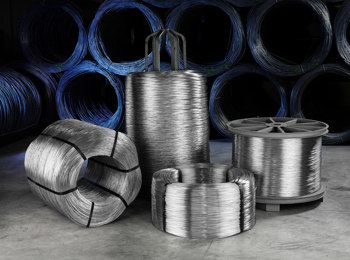Aug . 06, 2024 06:51 Back to list
Understanding the Costs and Factors Influencing Gabion Retaining Wall Pricing for Your Project
Gabion Retaining Wall Prices An Overview
In recent years, gabion retaining walls have gained popularity in various construction projects, including landscaping, road building, and environmental stabilization. These walls are constructed using wire mesh cages filled with stones or other materials, providing substantial strength and appealing aesthetics. However, one of the pressing questions for homeowners and contractors alike is what are the prices associated with building a gabion retaining wall?
Factors Influencing Gabion Retaining Wall Prices
Understanding the costs of gabion retaining walls requires consideration of several factors
1. Materials The primary cost driver is the materials used in the construction of the gabion walls. Gabion baskets can be constructed from various wire mesh types, with galvanized steel being the most common. The price of wire mesh fluctuates based on market demand and quality. The filler material, usually local stones or gravel, also significantly impacts overall costs. Transporting these materials can add additional expenses, particularly if the stones must be sourced from distant quarries.
2. Size and Design The size of the retaining wall plays a crucial role in determining costs. Larger walls require more materials and labor, thereby driving up the overall price. Additionally, the design complexity can affect costs. Simple, straight walls may be less expensive than those that require curves, terraces, or additional decorative features.
3. Labor Costs Labor expenses vary widely depending on geographical location and the availability of skilled workers. In areas with a high demand for construction labor, costs may soar. Labor costs also include not just the installation of the gabion walls but also excavating, leveling, and proper drainage considerations, all of which are necessary to ensure the wall performs effectively.
gabion retaining wall prices

4. Site Preparation Before a gabion retaining wall can be erected, site preparation is crucial. This may involve clearing the area, grading the land, and ensuring proper drainage. The condition of the site can impact costs significantly. For example, rocky terrain or unstable soil may necessitate additional engineering solutions, increasing costs.
5. Permits and Regulations Depending on local building codes and regulations, securing permits for constructing a retaining wall can also add to the overall price. Homeowners should ensure they are compliant with local laws to avoid fines or the potential need to dismantle non-compliant structures.
Average Cost Estimates
On average, the price of gabion retaining walls can range from $30 to $100 per square foot, depending on the factors mentioned above. Typically, the cost for materials alone is between $10 to $40 per square foot, while labor costs can add an additional $20 to $60 per square foot. Variations in pricing may occur based on the complexity of the project and local market conditions.
Conclusion
Gabion retaining walls offer an effective and visually appealing solution for those needing a durable structure to manage soil and prevent erosion. While prices can vary significantly based on materials, size, labor, site preparation, and local regulations, understanding these factors can help project owners estimate costs more accurately.
For anyone considering the installation of a gabion retaining wall, it is wise to obtain multiple quotes from experienced contractors to ensure a fair price. Additionally, thoroughly evaluating the site and planning ahead can lead to an efficiently executed project that stays within budget while enhancing the property's landscape and functionality.
-
Why PVC Coated Gabion Mattress Is the Best Solution for Long-Term Erosion Control
NewsMay.23,2025
-
Gabion Wire Mesh: The Reinforced Solution for Modern Construction and Landscape Design
NewsMay.23,2025
-
Gabion Wall: The Flexible, Seismic-Resistant Solution for Modern Landscaping and Construction
NewsMay.23,2025
-
Gabion Wall Solutions: The Durable, Decorative, and Affordable Choice for Every Landscape
NewsMay.23,2025
-
Gabion Basket: The Durable and Flexible Alternative to Traditional Retaining Walls
NewsMay.23,2025
-
Gabion Basket: The Proven Solution for Slope Stability and Flood Control
NewsMay.23,2025
-
Versatility of Chain Link Fence Gabion
NewsMay.13,2025






